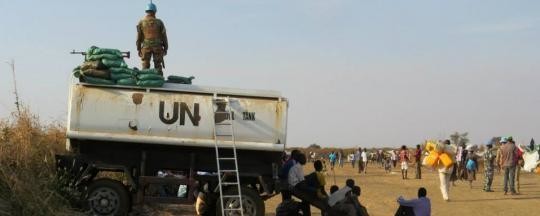A confidential United Nations report obtained by Radio Tamazuj says that the largest security threats to South Sudan’s transitional government are the country’s own leaders.
"The continued belligerence of the parties, their commitment to military rather than political means to achieve their aims, and the lack of political will to implement the Agreement pose the most significant security threats to the TGNU,” the UN panel of experts wrote.
The panel is made up of political, humanitarian, weapons, and economic experts, and the report obtained by Radio Tamazuj was to the UN Security Council. The report offers a damning indictment of rebel leader Riek Machar, but particularly also President Salva Kiir.
The report says that the UN Security Council should place an arms embargo on South Sudan because the biggest threat to the country is internal, rather than external. It alleges that parties in the agreement have made worse tribal tensions in the country.
"Arming of communities based on tribal affiliation continues to fuel widespread violence, and neither party has demonstrated a willingness to maintain basic law and order in areas under their respective control,” the panel said.
It also accused the Jieng Council of Elders, a group which has significant influence with Presidnet Kiir, of being instrumental in mobilizing violence against the UN and a regional protection force mandated by the Security Council.
While the rebel army under Riek Machar has received weapons and ammunition from Sudan, according to the report, the government has spent large amounts of money on new weapons.
The government has acquired two fighter jets that may have been used during fighting in July, according to the report.
During the fighting in July, the report said that Kiir and Army Chief of Staff Paul Malong commanded the government operations, using authority only they had to deploy attack helicopters in the capital.
“Weapons are continuing to be procured, with the civilian population of South Sudan bearing the brunt of the resulting harm,” the panel wrote.




